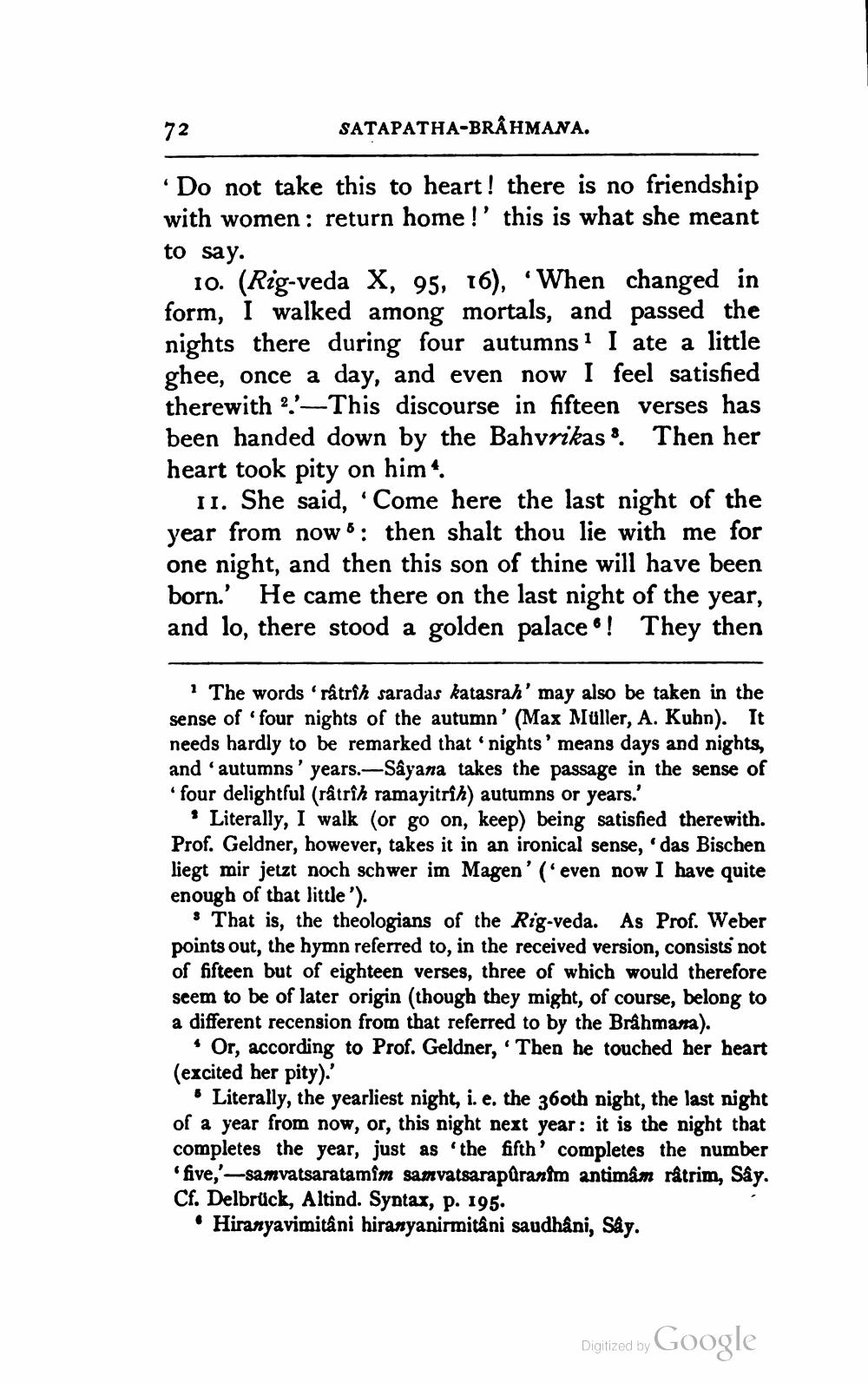________________
72
SATAPATHA-BRAHMANA.
'Do not take this to heart! there is no friendship with women: return home!' this is what she meant to say.
10. (Rig-veda X, 95, 16), 'When changed in form, I walked among mortals, and passed the nights there during four autumns1 I ate a little ghee, once a day, and even now I feel satisfied therewith 2-This discourse in fifteen verses has been handed down by the Bahvrikas. Then her heart took pity on him.
II. She said, 'Come here the last night of the year from now: then shalt thou lie with me for one night, and then this son of thine will have been born.' He came there on the last night of the year, and lo, there stood a golden palace! They then
1 The words 'râtrîh saradas katasrah' may also be taken in the sense of four nights of the autumn' (Max Müller, A. Kuhn). It needs hardly to be remarked that 'nights' means days and nights, and 'autumns' years.-Sâyana takes the passage in the sense of 'four delightful (râtrîh ramayitrîh) autumns or years.'
• Literally, I walk (or go on, keep) being satisfied therewith. Prof. Geldner, however, takes it in an ironical sense, 'das Bischen liegt mir jetzt noch schwer im Magen' ('even now I have quite enough of that little').
That is, the theologians of the Rig-veda. As Prof. Weber points out, the hymn referred to, in the received version, consists not of fifteen but of eighteen verses, three of which would therefore seem to be of later origin (though they might, of course, belong to a different recension from that referred to by the Brahmana).
* Or, according to Prof. Geldner, 'Then he touched her heart (excited her pity).'
• Literally, the yearliest night, i. e. the 360th night, the last night of a year from now, or, this night next year: it is the night that completes the year, just as 'the fifth' completes the number ‘five,’—samvatsaratamim samvatsarapuranim antimâm râtrim, Sây. Cf. Delbrück, Altind. Syntax, p. 195.
• Hiranyavimitâni hiranyanirmitâni saudhâni, Sây.
Digitized by
Google




